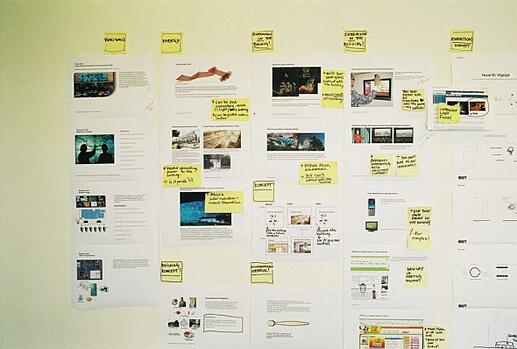Being interviewed to work at McKinsey was one of the more interesting experiences of my earlier life. Ten rounds of interviews, rigorous analytical tests, bizarre psychometric probes and a final cup of coffee with a senior partner of the firm that felt like a scene from a John Grisham novel - and voila, I was in. The story about how I never actually turned up for work is one I'll save for another day. But I do remember one thing from the process - McKinsey were obsessed with finessing their strategy of hiring and retaining 'smart people'.
After one of the interviews, a manager at the firm described their ideal archetype as a 'spiky integrator'. In essence, their perfect candidate was someone who had an extraordinary talent spike (e.g genius chess skills, Olympian athletic discipline or knowing six languages), but were also capable of integrating that skill across a range of other capabilities and in association with other team mates. Or to put it another way - they wanted freaks with social skills. The only problem with that personality type, as many companies discovered when they put former high flying management consultants into leadership teams - is that spiky integrators need to be surrounded by other super smart people in order to thrive. Out of the fish tank, they don’t survive too long.
For companies today, hiring smart people is still a critical priority. And it’s harder than ever. The digital revolution has had two major impacts on the war for talent. Firstly, you are now competing with the fact that the best candidates can earn significant incomes as free agents. With the Web offering a global customer base and infinite opportunities for fame, being a digital ronin or an entrepreneur has never been more seductive. But the second impact is just as profound. The concept of work has never been more challenging. Traditional industries are being disrupted, competition more nuanced, and the demands on managers more pronounced. Your old school spiky integrator might be able to draw up some rather pretty strategy slides describing your industry - but will they have the level headed poise to ruthlessly execute and get things done in an increasingly ambiguous and uncertain operating environment?
In the future, I think there will be three capability attributes that senior managers will need to look for in their top performers:
1. Super Synthesizers
In the old days, smart employees gathered competitive information in traditional ways - phone interviews, focus groups and industry surveys. Basically - you were clever if you knew how to pick up the phone and make some calls. Now we have the opposite problem - too much information. Super synthesizers are people with the capability of scanning and processing huge amounts of information. They are like human meta filters. With enough technical savvy and familiarity with blogs, social platforms and search algorithms - they can assess the topography of available data, see patterns and collate them as trends, prioritize and then act.
2. Hyper Connectors.
One of these days we will laugh about the fact people used to get fired for using Facebook or LinkedIn at work. Hyper Connectors are people that know how to swiftly build and exploit relevant networks to get things done. They won't necessarily have the largest collection of contacts, but they will know how to use digital platforms to find and nurture just the right set of people to reach their goals. These could be internal networks in a huge enterprise, or external webs of journalists, industry influencers and taste makers. You will recognise them in meetings because they are the first to say in the answer to a problem, 'I think I may know someone who..'
3. Change Optimists
The final quality of the future super smart might sound a bit soft but in some ways it is the most vital personal attribute - positivity. The pace of change is accelerating and there are people for whom that is good news, and others who, if they are honest with themselves, view that fact with dread. You can reassure the change pessimists about the future all you like but believe me - in the end, when faced with disruptive change, pessimists fight for the status quo not for future growth. Your best performers may not know the future, but they should be happy to meet it head on.
What do you think? Are there other attributes of what would make someone ‘super smart’ in the future?


